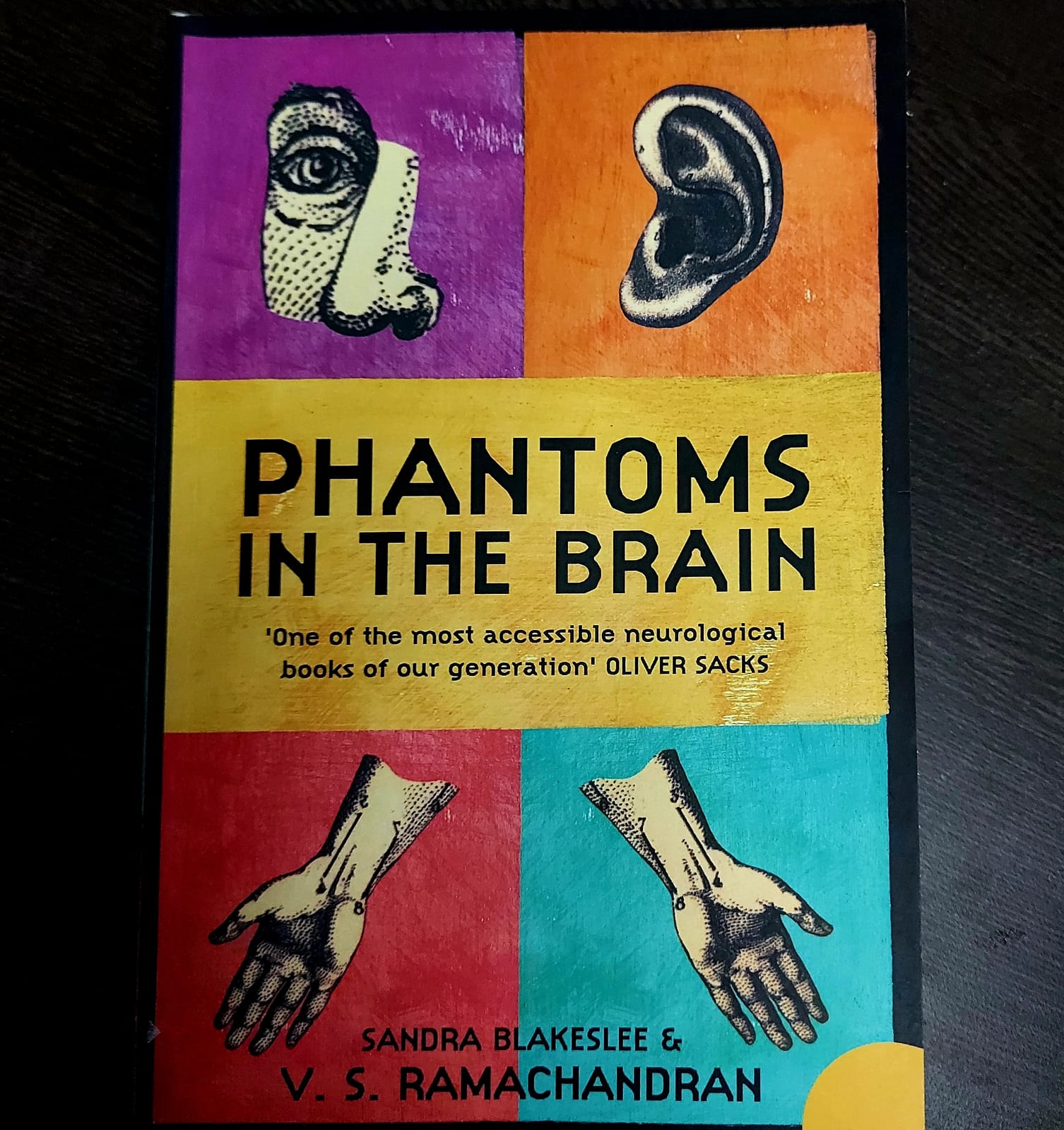He refused to associate himself with any investigation which did not tend towards the unusual, and even the fantastic
Dr. James Watson, Sherlock Holmes.
These words hold true for Dr. V. S. Ramachandran, a distinguished neuroscientist and a clinical psychologist. ‘Phantoms in the Brain’ is a narration of Dr. Ramachandran’s work experiences relating to the bizarre disorders of the brain that he encountered. This book has been authored by him along with a renowned science communicator, Sandra Blakeslee. Dr. Ramachandran considered it as his duty to write this book and communicate his work in a comprehensible manner to enlighten the laymen and help them understand the basics of these peculiar brain disorders.
The book starts with a foreword by Dr. Ramachandran himself where he encourages fellow scientists to believe in their instincts and formulate hypotheses. He stresses the importance of thinking beyond the phenomenon itself and diving deeper into the fundamentals. The book implores the scientists to think of the simplest solutions and methods in place of fancy instruments and high-tech tools. Indeed, there are multiple instances mentioned in the book where Dr. Ramachandran stands on the shoulders of his predecessors and unravels the mysteries of the brain, thus helping his patients and their family, with a logical explanation for their “uncanny” behaviour.
The book mentions that single case demonstrations are often imperative in budding fields like clinical psychology and neuroscience. Dr. Ramachandran explains in detail, the account of his ground-breaking mirror-based virtual reality box, which he initially tried on a single patient but is now a customary treatment practice for phantom limb pain. The book describes his work with multiple bizarre diseases like Phantom Limbs, Anosognosia, Capgras Syndrome, Neglect Syndrome, and many more. It also touches upon the cortical reorganization that happens in the amputees and the limbic system which is linked to the perception of religion and God. In the end, the authors talk about the most interesting question existing in philosophy – the idea of the self, the consciousness. Dr. Ramachandran discusses the possibility of studying consciousness not as a philosophical problem but as an empirical one.
This book is a perfect short read for inquisitive people from the scientific as well as the non-scientific community as it is a tremendous source of inspiration, motivation, and knowledge for both alike. It is a perfect blend of happy and hopeful stories with witty sense of humour. For people who enjoy mysteries and thrillers, along with the need to gain knowledge while reading, this book is a superb read.
Special thanks to Chetan Mishra and K. Sangeetha for proofreading and encouraging me to write this book review.
Srashti Jyoti Agrawal, PhD researcher in Dr. Sridhar Sivasubbu’s lab, is studying the powerhouse of the cell with the help of little friends called Zebrafish. She is a part-time reader who gets thrilled by mysteries.
She is an art and writing enthusiast who loves to explore new things.


